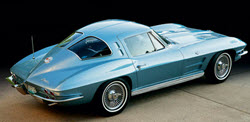The role of Zora Arkus-Duntov, the “Father of the Corvette.”
The Beginnings of Zora Arkus-Duntov
Zora Arkus-Duntov, often celebrated as the “Father of the Corvette,” was instrumental in transforming Chevrolet’s Corvette from a novel sports car concept into an iconic representation of American automotive performance and racing excellence. His work and influence in the automotive industry marked a significant turning point for Chevrolet and the Corvette brand, leaving a lasting impact that continues to resonate with car enthusiasts and racing aficionados. Born in Belgium in 1909 to Russian parents, Arkus-Duntov’s early life was characterized by a profound fascination with automobiles and engineering, laying a foundation that would support his illustrious career in the world of automotive innovation. Following his move to the United States, his association with Chevrolet began in 1953, a mere year after the Corvette’s initial introduction.
Contributions to the Chevrolet Corvette
Upon his entry into the Chevrolet engineering department, Zora Arkus-Duntov was confronted with the challenge of a Corvette that lacked the performance attributes necessary to compete with its superior European counterparts. Engines of greater capability, handling, and overall performance were essential components that the Corvette required to fulfill its intrinsic potential. Arkus-Duntov was unwavering in his belief that the Corvette should encapsulate the essence and abilities of an authentic American sports car. He worked relentlessly to address and improve these critical components, ensuring that the Corvette could not only participate but also thrive in the competitive landscape of sports cars.
One of Arkus-Duntov’s early and significant contributions was the adoption of the V-8 engine for the Corvette in 1955. This innovation dramatically enhanced the vehicle’s performance, effectively positioning the Corvette on the trajectory to becoming a symbol of speed and agility. The introduction of the V-8 engine was a decisive factor that elevated the Corvette from a low-performance car to one capable of substantial acceleration and excitement. This engine became a hallmark of the Corvette’s identity, underscoring Arkus-Duntov’s commitment to engineering excellence.
Beyond the V-8 engine, Arkus-Duntov was an enthusiastic proponent of fuel injection, which significantly boosted the Corvette’s credentials within the racing community. By advocating for and implementing fuel injection systems, he was able to achieve a more efficient and powerful engine, enhancing the Corvette’s competitive edge on the racetrack. This crucial advance contributed to the Corvette’s burgeoning reputation and appeal among racing enthusiasts and drivers seeking high performance.
Innovative Engineering: The Duntov Touch
Zora Arkus-Duntov’s influence was not limited to enhancements in engine power; his innovative contributions extended to various aspects of engineering design and automotive technology. His foresight and leadership in the development of several Corvette models left an indelible mark. A significant innovation introduced during his tenure was the integration of a lightweight fiberglass body, replacing the heavier, traditional materials used in car manufacturing. This change significantly augmented the car’s agility and speed, aligning the Corvette more closely with the desired performance standards.
Furthermore, Arkus-Duntov was a key proponent in the design and implementation of the limited-slip differential, an advancement that greatly augmented traction and driving dynamics. The limited-slip differential allowed the Corvette to transfer power more effectively to the wheels, improving overall performance, especially in high-intensity driving scenarios such as sharp turns or uneven terrains.
Arkus-Duntov was not solely focused on technical innovations; his commitment to racing was also evident in his development of the Corvette Grand Sport. The Grand Sport was a high-performance model specifically engineered to compete with dominating European cars in grueling endurance races. Even though the production was limited and the car faced various challenges, the Corvette Grand Sport emerged as a legend, a testament to Arkus-Duntov’s foresight and unmatched engineering prowess.
The Legacy of Zora Arkus-Duntov
The impact of Zora Arkus-Duntov on the Corvette extended beyond his engineering achievements and innovations. He instilled within Chevrolet a culture of relentless pursuit of performance and creativity, a culture that continues to define and drive the Corvette brand today. Even following his retirement from General Motors in 1975, Arkus-Duntov’s legacy remained an integral part of the narrative surrounding the Corvette. His vision and untiring passion for innovation contributed significantly to the enduring status of the Corvette as a symbol of American automotive design and performance prowess. Arkus-Duntov not only shaped a car but also crafted a brand ethos that celebrates excellence and a competitive spirit.
For those with an interest in exploring further the life and contributions of Zora Arkus-Duntov to the automotive world, there are numerous resources and biographies available. These delve deeper into the details of his life, offering insights into the journey of a man whose passion and ingenuity helped redefine an industry and inspire generations of automotive engineers and enthusiasts. Zora Arkus-Duntov’s story is more than a tale of engineering prowess; it is an enduring narrative of creative spirit and the relentless pursuit of excellence that continues to inspire and influence to this day.



